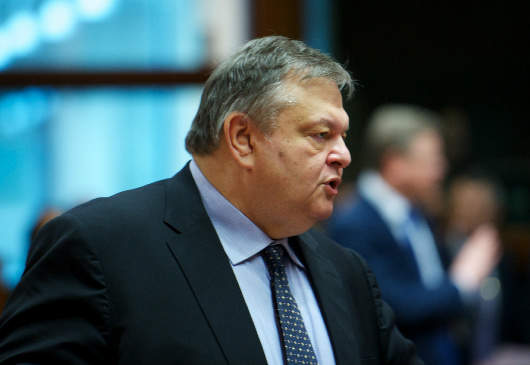 Our reaction today – a day after the referendum – is an easy one, almost automatic. The European policy must always be a policy based on principles. Territorial integrity and respect for existing borders is the foundation of the status quo, the international legal order and of peace and stability in Europe and throughout the world.
Our reaction today – a day after the referendum – is an easy one, almost automatic. The European policy must always be a policy based on principles. Territorial integrity and respect for existing borders is the foundation of the status quo, the international legal order and of peace and stability in Europe and throughout the world.
The text of the draft conclusions is balanced. The list of persons who are being put under the status of the sanctions, which was drawn up by COREPER, constitutes an indication of Europe’s resolve, but at the same time we are keeping the political and diplomatic channels of communication open with Russia, on the highest possible level.
Our stance on the Ukrainian government is also clear. We continue to insist on the critical points: The inclusiveness not only of the political and social forces, but also of all the regions; security; the roadmap towards democratic normalization; respect for ethnic and ethno-linguistic minorities.
Of course, the avoidance of a disorderly default is also an extremely important issue. This means the potential for implementing substantial economic, social and institutional reforms. This is always very difficult when reforms are accompanied by economic measures that unpleasant for society. If this is difficult for any government, we can imagine how much more difficult it is for Ukraine’s transitional government.
So that is the easy part of our policy.
But there is always the strategic problem. What is our outlook for the next steps Russia will take and for the evolution, or even the escalation, of our reactions?
How clear and complete is our picture of the strategic framework the U.S. government will follow?
It is well known, moreover, that what is at stake in the economic relations between the European Union and Russia is much greater than what is at stake in U.S.-Russian relations.
This is also the right time for us to carry out a reassessment of the European policy of recent months regarding Ukraine and the Eastern Partnership in general.
Are these developments in Ukraine and Crimea part of our strategic forecasts? If so, what do we see for the future?
Nor was it our goal to push Russia towards exiting the international community, in the context of a new Cold-War rationale.
Russia must remain within the framework of the international community and the international legal order, because we have an historical obligation to seek a diplomatic and political solution as fast as possible.
March 17, 2014


